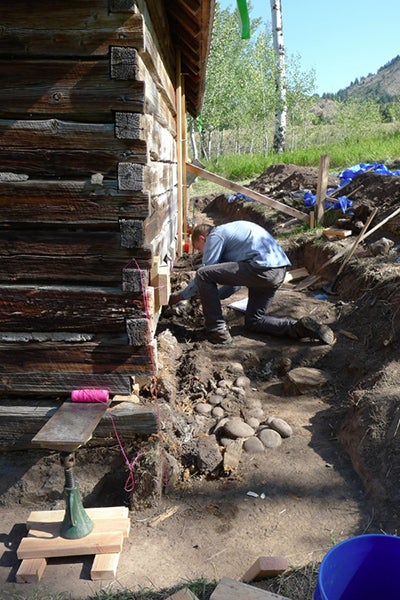
Above: Participants in the 2014 Pacific Northwest Field School in Eastern Idaho work on replacing the sill of an early 1900s homestead on the South Fork Snake River. This year’s Field School moves to an urban setting, in the Portland, Oregon, metropolitan area. Photos courtesy Pacific Northwest Field School.
The 2015 Pacific Northwest Preservation Field School will be located in the Portland, Oregon, metropolitan area for one-week sessions in August and September. The program will focus on two sites: the Andrew Jackson Masters House in Hillsboro, Oregon, and cabins at Tryon Creek State Park in southwest Portland. Each week of the program will include hands-on projects at both sites simultaneously, giving students ample opportunity to learn techniques of preserving a pioneer-era house and log cabin.
The Field School is offered this year on August 23-28, August 30-September 4, and September 6-11. Applicants may register for more than one week.
The University of Oregon's Historic Preservation Program developed the Field School to provide participants with opportunities to gain experience working with preservation craftspeople in a hands-on environment in spectacular Pacific Northwest settings. The curriculum is designed to attract people from all walks of life, from those with no experience in preservation to practicing cultural resource professionals. Many participants have used the field school to launch into historic preservation careers; others have used it to expand their role in their current preservation career.
Faculty members at the Field School have come from the U.S. National Park Service, U.S. Bureau of Land Management, Oregon Parks and Recreation Department, Oregon State University, University of Oregon, Washington State Parks and Recreation Commission, Washington State Office of Archaeology & Historic Preservation, and the professional preservation community.
All sessions entail hands-on-work, investigation and documentation of findings, and various preservation-related activities, including field trips. Evening lectures will focus on the week's special theme, but can and will delve into other areas of preservation.
Location 1: The Andrew Jackson Masters House
The Andrew Jackson Masters House was built in 1853 and is one of the oldest houses still standing in Washington County. The house was built using box construction with beams, cross ties, and uprights milled from cedar logs. The Field School projects will include back porch stabilization, rebuilding the cornice, developing a new roof and site drainage plan, restoring the original kitchen chimney, restoring windows, investigating archeological resources on site, and completing further research and material testing inside the house.
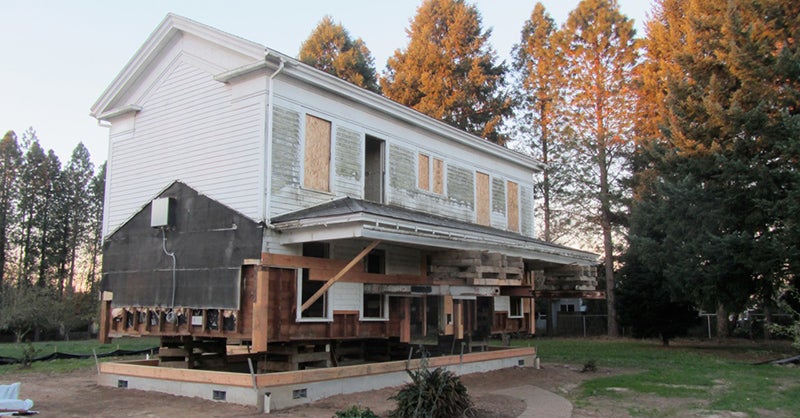
Above: The 1853 Andrew Jackson Masters House is the oldest house still standing in Washington County. The 2015 PNWFS will be restoring the back porch along with archeological investigation around the site.
Location 2: Arnold Park Log Cabin
The Arnold-Park Log Home, built between 1907-1917, embodies ideals of the Arts & Crafts movement as reflected in the unique owner designed and built log-and-frame residence. Because of its exceptional craftsmanship (e.g., in the fitting of the logs and execution of architectural features), it is listed on the National Register of Historic Places. The Field School projects will focus on repairing rotted porch floors and stairs (including investigation of types of wood rot and interventions), restoring windows, researching extant interior finishes (e.g. faux wood graining, parquetry floors, and paint layers), writing a master plan for the site, and developing a landscaping plan for the site.
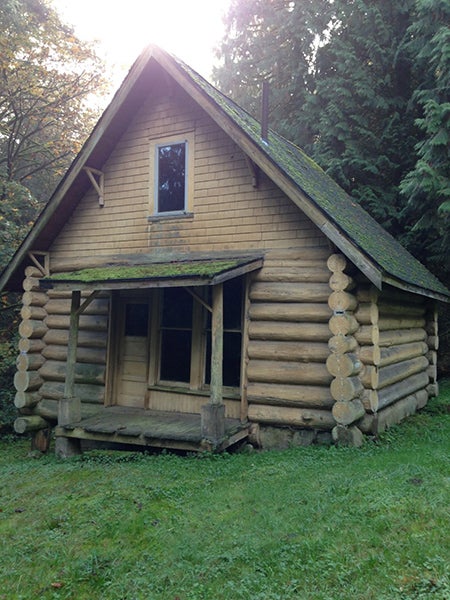
Above: This is the first cabin John Arnold constructed circa 1890, prior to construction of the Arnold Park Cabin. The Field School projects will focus on repairing rotted porch floors and stairs, restoring windows, researching extant interior finishes, writing a master plan for the site, and developing a landscaping plan for the site.
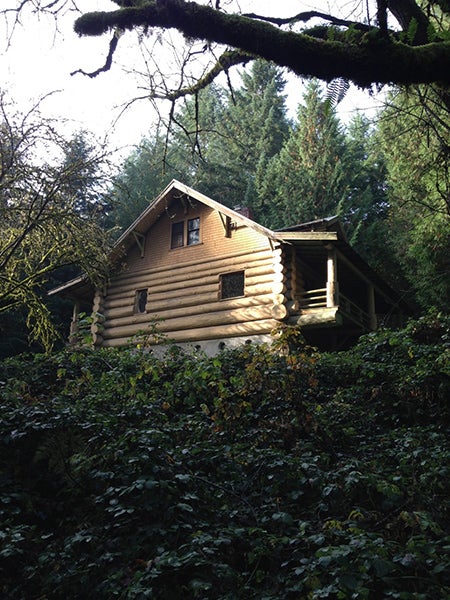
Above: The Arnold Park Cabin was constructed between 1907 and 1917, and is located within Tryon Creek State Park. Projects for the 2015 PNWFS include restoring the north and south facing porches and wood window repair.
Field School participants can earn two (2) graduate or undergraduate level credits from the University of Oregon for each repeatable one-week session. Grading is pass/no pass.
• Not for credit: $900
• Two (2) undergraduate credits: $1,100
• Two (2) graduate credits: $1,250
• Additional credit: $200 per director's approval
Tuition includes food, lodging, and transportation during each week-long session. Participants are responsible for arranging their own travel to and from Portland.
A Director's Student Scholarship is available, but not limited to, individuals planning a career in the preservation field who without this funding assistance may not be able to attend the Field School. The recipient must be taking the Field School session(s) for academic credit. The award covers tuition for one field school week and additional travel expenses.
For more information visit the field school website, email pnwfs@uoregon.edu, or call 541-346-2089.
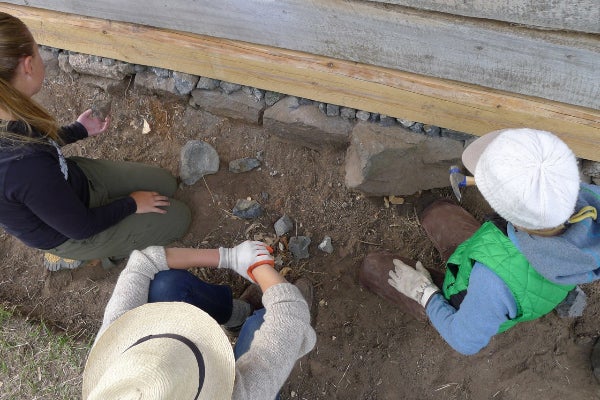
Above: Field School participants in 2014 stabilize the foundation at the homestead cabin, located on the Fisher Bottoms historic site in Idaho.
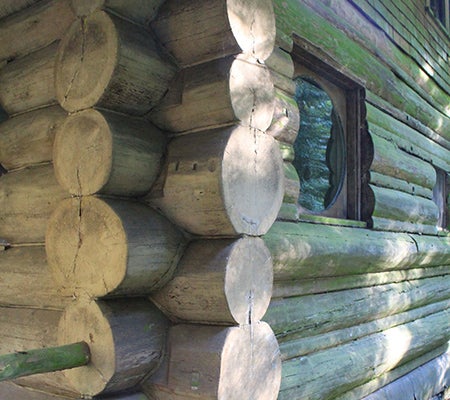
Above: Detail of the stacked peeled logs at the Arnold Park Cabin. Note the fixed glass, circular window, and cedar shingles above the logs.
